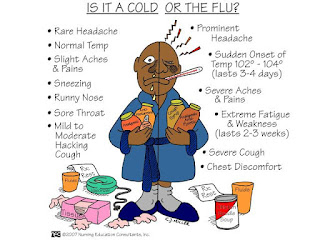Medical mnemonics are helpful study aids for nursing examinations like NCLEX. Many students use them in remembering complex nursing concepts. Fortunately, there are plenty of eye-catching nursing mnemonics around that you can use in studying especially for NCLEX.
Here are some of the popular mnemonics among nursing students. Can you remember them all?
Mnemonics for NCLEX preparation
Here is a sample of this NCLEX guide :
Hypovolemia – incrased temp, rapid/weak pulse, increase respiration, hypotension, anxiety,
urine specific gravity >1.030
Hypervolemia – bounding pulse, SOB, dyspnea, rares/crackles, peripheral edema, HTN, urine
specific gravity <1.010; Semi-Fowler’s
Diabetes Insipidus (decreased ADH): excessive urine output and thirst, dehydration,
weakness, administer Pitressin
SIADH (increased ADH): change in LOC, decreased deep tendon reflexes, tachycardia, n/v/a,
HA; administer Declomycin, diuretics
Hypokalemia: muscle ewakness, dysrhythmias, increase K (raisins, bananas, apricots, oranges,
beans, potatoes, carrots, celery)
Hyperkalemia: MURDER – muscle weakness, urine (oliguria/anuria), respiratory depression,
decreased cardiac contractility, ECG changes, reflexes
diuretics, fluids
Hypernatremia: increased temp, weakness, disorientation/delusions, hypotension, tachycardia;
hypotonic solution
Hypocalcemia: CATS – convulsions, arrhythmias, tetany, spasms and stridor
Hypercalcemia: muscle weakness, lack of coordination, abdominal pain, confusion, absent
tendon reflexes, sedative effect on CNS
HypoMg: tremors, tetany, seizures, dyrshythmias, depression, confusion, dysphagia; dig toxicity
HyperMg: depresses the CNS, hypotension, facial flushing, muscle ewakness, absent deep
tendon reflexes, shallow respirations, emergency.
Acces all the 35 pages :
The 35 pages NCLEX study EVERYONE is looking for!
Pharmacology isn’t the easiest to study and master. Apart from drug names, you also have to know what they do, how they interact with each other, and who they are for. You also need to know how much the body can take and what can happen if a patient takes more than what’s necessary.
As a student nurse, these things can easily make you feel overwhelmed.
As a way to help you, we’ve created this list of pharmacology mnemonics you’ll find handy when studying and preparing for exams.
50 Pharmacology Mnemonics and Tips [Share it,it's free!!]
Here is a sample of this NCLEX guide :
Hypovolemia – incrased temp, rapid/weak pulse, increase respiration, hypotension, anxiety,
urine specific gravity >1.030
Hypervolemia – bounding pulse, SOB, dyspnea, rares/crackles, peripheral edema, HTN, urine
specific gravity <1.010; Semi-Fowler’s
Diabetes Insipidus (decreased ADH): excessive urine output and thirst, dehydration,
weakness, administer Pitressin
SIADH (increased ADH): change in LOC, decreased deep tendon reflexes, tachycardia, n/v/a,
HA; administer Declomycin, diuretics
Hypokalemia: muscle ewakness, dysrhythmias, increase K (raisins, bananas, apricots, oranges,
beans, potatoes, carrots, celery)
Hyperkalemia: MURDER – muscle weakness, urine (oliguria/anuria), respiratory depression,
decreased cardiac contractility, ECG changes, reflexes
diuretics, fluids
Hypernatremia: increased temp, weakness, disorientation/delusions, hypotension, tachycardia;
hypotonic solution
Hypocalcemia: CATS – convulsions, arrhythmias, tetany, spasms and stridor
Hypercalcemia: muscle weakness, lack of coordination, abdominal pain, confusion, absent
tendon reflexes, sedative effect on CNS
HypoMg: tremors, tetany, seizures, dyrshythmias, depression, confusion, dysphagia; dig toxicity
HyperMg: depresses the CNS, hypotension, facial flushing, muscle ewakness, absent deep
tendon reflexes, shallow respirations, emergency.
Acces all the 35 pages :
The 35 pages NCLEX study guide !! [FREE]
Medical mnemonics are helpful study aids for nursing examinations like NCLEX. Many students use them in remembering complex nursing concepts. Fortunately, there are plenty of eye-catching nursing mnemonics around that you can use in studying especially for NCLEX.
Here are some of the popular mnemonics among nursing students. Can you remember them all?
The 109 Most Popular Nursing Mnemonics
Inscription à :
Commentaires
(
Atom
)





